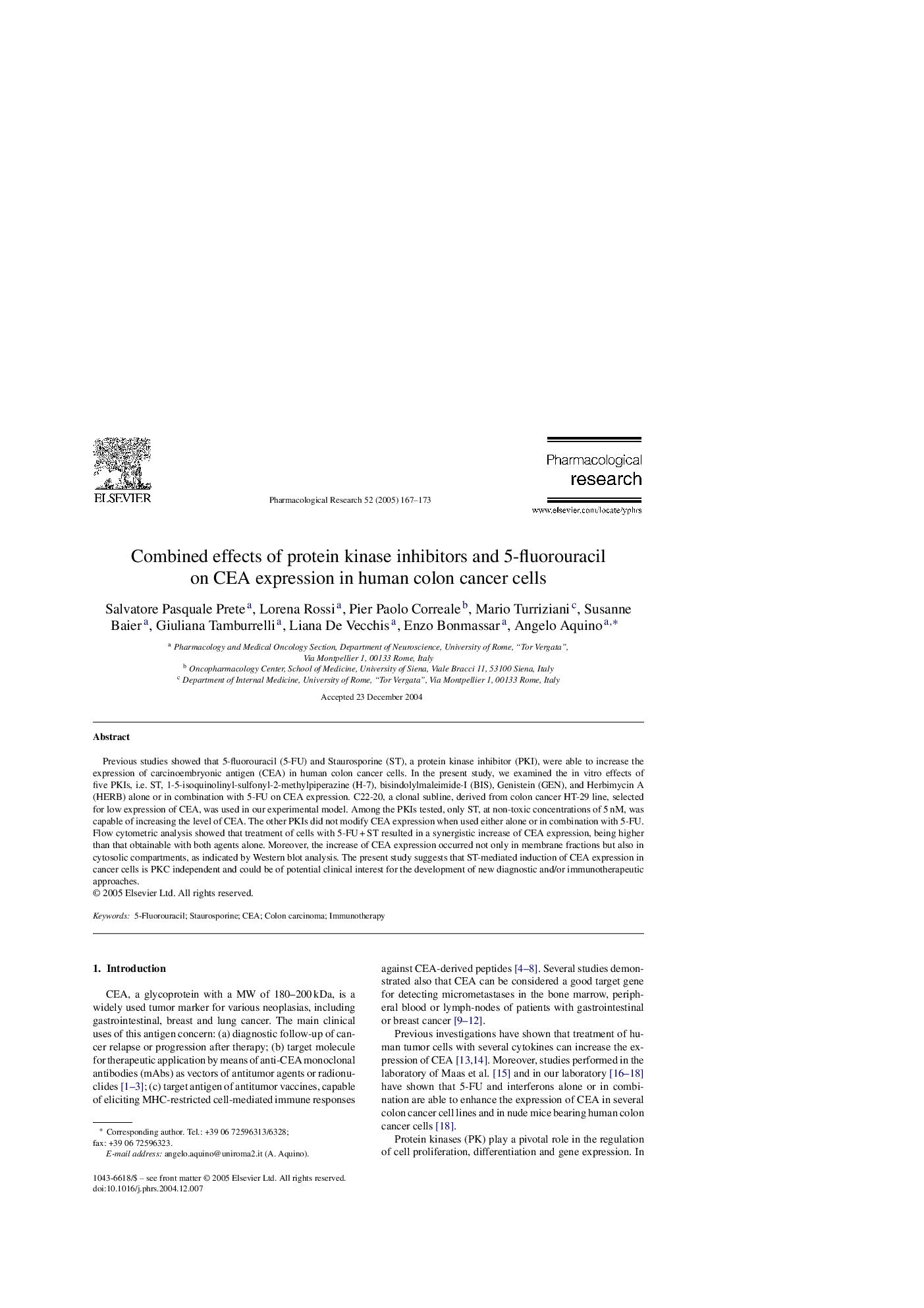| Article ID | Journal | Published Year | Pages | File Type |
|---|---|---|---|---|
| 9015713 | Pharmacological Research | 2005 | 7 Pages |
Abstract
Previous studies showed that 5-fluorouracil (5-FU) and Staurosporine (ST), a protein kinase inhibitor (PKI), were able to increase the expression of carcinoembryonic antigen (CEA) in human colon cancer cells. In the present study, we examined the in vitro effects of five PKIs, i.e. ST, 1-5-isoquinolinyl-sulfonyl-2-methylpiperazine (H-7), bisindolylmaleimide-I (BIS), Genistein (GEN), and Herbimycin A (HERB) alone or in combination with 5-FU on CEA expression. C22-20, a clonal subline, derived from colon cancer HT-29 line, selected for low expression of CEA, was used in our experimental model. Among the PKIs tested, only ST, at non-toxic concentrations of 5Â nM, was capable of increasing the level of CEA. The other PKIs did not modify CEA expression when used either alone or in combination with 5-FU. Flow cytometric analysis showed that treatment of cells with 5-FUÂ +Â ST resulted in a synergistic increase of CEA expression, being higher than that obtainable with both agents alone. Moreover, the increase of CEA expression occurred not only in membrane fractions but also in cytosolic compartments, as indicated by Western blot analysis. The present study suggests that ST-mediated induction of CEA expression in cancer cells is PKC independent and could be of potential clinical interest for the development of new diagnostic and/or immunotherapeutic approaches.
Related Topics
Health Sciences
Pharmacology, Toxicology and Pharmaceutical Science
Pharmacology
Authors
Salvatore Pasquale Prete, Lorena Rossi, Pier Paolo Correale, Mario Turriziani, Susanne Baier, Giuliana Tamburrelli, Liana De Vecchis, Enzo Bonmassar, Angelo Aquino,
